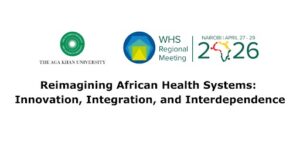By Elie Mutangana
Partners in the fight to interrupt transmission of Neglected Tropical Diseases and WASH promotion have vowed to foster collaborative efforts to improve hygiene, promote safe sanitation, and social behavior change to protect vulnerable communities from the NTD.
This was highlighted in Kigali, on January 16, during the workshop that convened various stakeholders to focus on WASH and Social Behavior Change (SBC) to interrupt the transmission of Bilharzia and Intestinal Worms by 2030.
The validation and dissemination workshop discussed the findings from a needs assessment on WASH and SBC.Conducted in Bugesera and Ruhango districts, outcomes from the assessment are meant to enable the concerned stakeholders to get information and keynotes in implementing measures in a project that is expected to interrupt the transmissions and elimination of NTD, as per officials.
“The project is being implemented as a pilot project until 2027. The activities, intervention and collaboration of stakeholders will be centered in these two districts.
After seeing how the program runs, it will be scaled up across the country. It is called the interruption of the transmission because it is the last stage toward the elimination, and our country as we all know_ through Kigali declaration on Neglected Tropical Diseases , it is aiming toward eliminating them as a public problem by 2030.” said Eric Niyongira who oversees the NTD programme at Rwanda NGOs Forum on HIV and Health Promotion
He specified that the assessment mainly focused on determining the status of WASH and NTD in the sector of social behavior change, people’s perspectives and what might be the challenges for people to assimilate the interventions that have put in place.

“Though the journey is not easy, but it is feasible because the collaborations and investing into Mult-sectoral collaboration with various stakeholders is going to be the key”. Furthermore, engaging the community by decentralizing the interventions to the beneficiaries will be considered, according to him.
While adequate adherence to WASH practices and social behavior change is critical to preventing the NTD, the findings from the assessment indicated gaps, calling stakeholders to find information-based solutions.
It showed that a big proportion of households in the surveyed districts do not have access to WASH services or sanitation facilities, while some individuals reported to be clueless about some NTD such as Bilharzia.
Allocating resources for water supply systems in communities with low coverage was recommended as a solution and key to interrupting transmissions.
Many households still use poor contaminated water like swamp water as the findings showed.
Availability of latrines at workplace particularly for people working on marshlands remain hard-to-solve issues as egg from human faeces allegedly remain contaminating the soil, resulting to transmission of soil-transmitted helminthiasis (STH), commonly known as intestinal worms
“Most people still defecate on soil surface which is another challenge to interrupt the transmission” one participant in the workshop raised.
Landslas Nshimiyimana, NTD Research Senior officer at RBC (Rwanda Biomedical Center) said that the country understands the current weight of the problem of transmissions and committed to eliminating the NTD concerns through strong collective collaboration with various stakeholders.
“This is a good starting point because it does really point to the areas where we must focus if we want to have an impact, but It requires a multisectoral approach” he said.

Dr. Eugene Ruberanziza, the Senior Director of Programs at END Fund, a non-profit organization dedicated to combating the five most common neglected tropical diseases that cause up to 90% of the NTD burden in Sub-Saharan Africa pledged strong and unwavering support to the government in its way towards the elimination of NTD.






